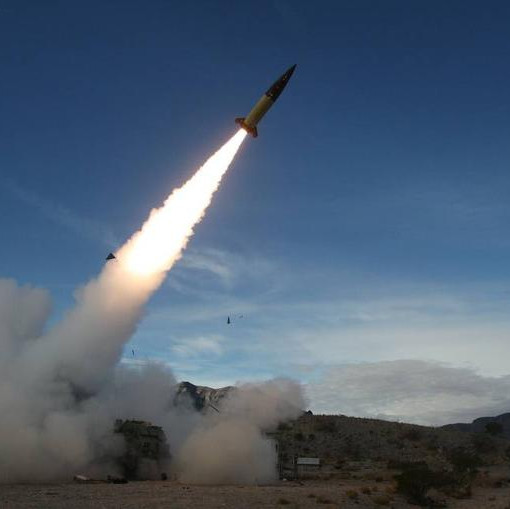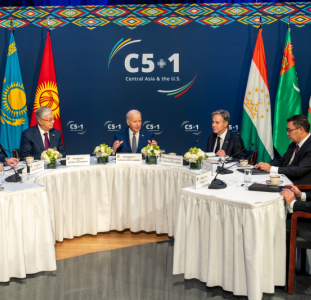
In late April, the upper house of Japan’s parliament ratified agreements with Australia and the United Kingdom on conditions for mutually deploying troops in each other's territory against the possibility of joint exercises, among other things. The agreements also enable sides to use each other's military for disaster mitigation, according to the Kyodo news agency.
Note that Britain has become the first European country to sign a Reciprocal Access Agreement (RAA) with Japan to become their most important defense cooperation document since 1902. In this regard, British Prime Minister Rishi Sunak said the mutual access agreement is vital to both countries, as it emphasizes joint efforts to strengthen economic security in the Indo-Pacific region (ITR).
According to the documents, from now on legal and customs obstacles to the transfer of troops and weapons are removed and logistics is facilitated. They determine the legal status of troops in foreign territories, and the procedure for punishing military personnel in case of offenses. By the way, the last point was quite an issue while developing the current agreements, since there is no death penalty in Australia or the UK, unlike Japan. The Japanese-approved documents actually empower London and Canberra to refuse delivering their military personnel faced with capital punishment under Japanese law.
The agreements unambiguously indicate that Australia, Great Britain and Japan are set to intensify joint exercises, which have so far been mainly naval. They widen choices as regards ground and airborne forces.
In part, Japan's desire to strengthen security cooperation with new countries was brought about by concerns regarding US reliability as an ally and defender under Donald Trump. Subsequent assurances by the Biden administration about the importance of alliances did help, but not that much: the hasty flight of American military from Afghanistan sowed doubts both in Tokyo and other US-allied countries. However, Washington itself actively encouraged its allies to strengthen ties among themselves, primarily because of the hyped Chinese threat. Persuasion was hardly even needed here.
One can assume that agreements between Australia, Great Britain and Japan on the mutual deployment of troops are also reliant upon Washington's approval. After all, the United States is known to have been used to solving its problems with someone else's hands. Like they do in the current Ukraine conflict, pumping up the Kiev regime with weapons and ready to fight with Russia to the last Ukrainian. It is getting increasingly obvious that the United States will not directly interfere with nuclear China over Taiwan or Senkaku. To do this, they may successfully use their allies in the region — Japan, Australia, and now the UK, which publicly declares commitment to a secure and stable ITR.
And yet the question arises as to why would Britain strike military cooperation agreements with Australia and Japan, located thousands of miles away from the British Isles? Especially given that London, Washington and Canberra do already have their anti-Chinese AUKUS block in the ITR. And the bottom line is that after Brexit in January 2020, London shifted towards Asia, Africa and Latin America. It is therefore not by chance that the spring of 2021 saw the new UK defense and foreign policy strategy feature the slogan Make Britain Great Again! Under Prime Minister Sunak, London's efforts have mainly shifted to the region close to his heart — the ITR, where the UK intends, along with the United States, Australia and, as we see now, Japan, to resist China's ever-gaining economic and military power.
Moreover, as part of its recent pivot to militarization, Japan has been undertaking the largest military spending increase since World War II, for which it intends to allocate 43 trillion yen ($326 billion) over the next five years. This fits perfectly into provisions of Japan’s new National Security Strategy (NSS) adopted by Fumio Kishida’s Cabinet in December last year. Tokyo makes no secret of its intention to defend itself from China — after all, the PRC is deemed as the "greatest strategic challenge", with Russia only "causing security concerns". Being the key US ally in Asia, Japan supports Washington's anti-Chinese course on many points, as it may help it into the US military planning and management system in East Asia.
Interestingly, Japanese Prime Minister Kishida has repeatedly stated since the beginning of the Ukraine conflict that tomorrow it "could become East Asia," unmistakably hinting at China’s possible attack against Taiwan. Due to its proximity to the Japanese islands and key sea routes, officials in Tokyo have long began considering any emergency situation for Taiwan as an emergency for Japan itself. And they started preparing for this in advance, including strengthened defense ties with the United States and other American allies.
Apparently, Japan has completely forgotten who bombed Hiroshima and Nagasaki in August 1945. Americans loathe to recollect this either. For example, during his recent visit to Japan, US Secretary of State Anthony Blinken spoke beautifully about human sufferings the tragedy inflicted, but deliberately kept silent about those behind it. Small wonder, though, because the Americans themselves hardly know what a real war is. On their continent, the last battles died down in 1865. They never experienced the horrors of World Wars I and II, mass destruction, famine, concentration camps, multimillion human losses. For this reason, Washington easily reasons about the need to arm up, prepare for new wars, inflict military defeats on other countries, particularly Russia and China. And for these purposes, military units and associations are being created in the same ITR – AUKUS and QUAD (USA, Australia, India, Japan).
Paradoxically, Great Britain and Japan, both once empires and now nominal monarchies, were sworn enemies in the Second World War in the Pacific. And today they are, ironically, ready to join forces in combating their allegedly shared external threat in the same ocean – the PRC.









